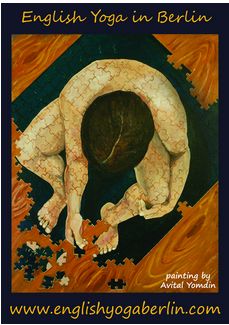What is Karma?
Karma: it’s a word that brings up many different impressions. For some people it brings up ideas about past lives. For others it conjures up the idea that what goes around comes around. It is an ancient word with a rather complex definition- a vast spiritual law that many try to explain using only their intellect.
When people talk about karma they often refer to the law of Karma which states that every action will have a reaction. But it is incredibly important to look further into this philosophy to understand the true definition that seeks to heal people, bring them together and not to create a new method for judgment and division. Our yoga in Kreuzberg focuses on just that- unity, not division, and we caution people to discover this complex term for themselves.
Karma – the word Karma in itself literally only means “action, work, deed”. Today many people in the West use the word Karma loosely and irresponsibly to mean “you get exactly what you deserve”. These are oversimplification of the Vedantic philosophy that often do more harm than good.










 a Yoga in Berlin, I often use Sanskrit words in our classes when wanting to describe a pose or the reason behind something we are supposed to do. I try to always accompany these words with a translation, but every now and then I still see confused faces looking up at me. I realize that sometimes, especially when teaching yoga in English, it is important to not only describe the action in Sanskrit but to also offer a translation in plain English.
a Yoga in Berlin, I often use Sanskrit words in our classes when wanting to describe a pose or the reason behind something we are supposed to do. I try to always accompany these words with a translation, but every now and then I still see confused faces looking up at me. I realize that sometimes, especially when teaching yoga in English, it is important to not only describe the action in Sanskrit but to also offer a translation in plain English. spects of the self: the body, the mind and the soul. Over the centuries, it has become common for people to also translate the word yoga as “union”. And since the practice of Yoga affects people in so many different ways, the definitions of Yoga seem to be multiplying as yoga spreads throughout the world.
spects of the self: the body, the mind and the soul. Over the centuries, it has become common for people to also translate the word yoga as “union”. And since the practice of Yoga affects people in so many different ways, the definitions of Yoga seem to be multiplying as yoga spreads throughout the world.


